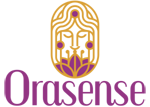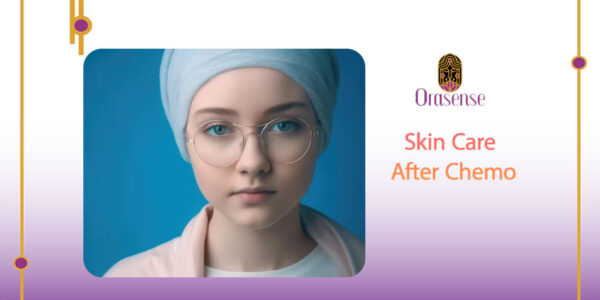
Your face is one of the first things people notice about you, and it’s the focal point of all your expressions. That’s why it’s essential to take good care of it. A healthy, glowing complexion can boost your confidence and make you feel more attractive. Rejuvenating your face skin is a process that can help you achieve that. Rejuvenating your facial skin can help to reduce the signs of aging, improve skin texture, and promote skin health. It involves adopting good habits and a skincare routine that works for your skin type. In this article, we will provide you with some tips to help you rejuvenate your face skin and make it look younger.
Daily Skincare Routine
Establishing a daily skincare routine is one of the most important steps in rejuvenating your facial skin. Here are some steps you should include in your daily routine:
- Cleansing: Cleansing your face is essential to remove dirt, oil, and makeup that accumulate on your skin throughout the day. Use a gentle cleanser that suits your skin type, and wash your face twice daily – in the morning and before bedtime.
- Toning: Toning helps to balance the pH level of your skin and prepare it for the next steps of your skincare routine. Use a toner that suits your skin type, and apply it using a cotton pad.
- Moisturizing: Moisturizing your skin helps to keep it hydrated, soft, and supple. Choose a moisturizer that suits your skin type and apply it after cleansing and toning.
- Sunscreen: Protecting your skin from the sun’s harmful UV rays is crucial to prevent skin damage and premature aging. Apply a broad-spectrum sunscreen with an SPF of at least 30 days, even on cloudy days.
By following these steps, you can keep your skin clean, hydrated, and protected from external factors that can damage your skin.

(Rejuvenate face skin tips) Nutrition and Hydration
The food you eat and the liquids you consume play a significant role in the health and appearance of your skin. Here are some tips to help you improve your diet and hydration for healthy and rejuvenated facial skin:
- Eating a healthy diet: A diet rich in fruits, vegetables, whole grains, and lean proteins provides your body with essential nutrients, vitamins, and antioxidants that help to improve skin health. Avoid processed and sugary foods, as they can cause inflammation and breakouts.
- Drinking enough water: Drinking enough water is crucial to keep your skin hydrated and plump. Aim to drink at least 8 glasses of water daily, and increase your intake if you live in a dry or hot climate.
- Avoiding alcohol and smoking: Alcohol and smoking can cause dehydration and damage your skin, leading to premature aging and other skin issues. Try to limit your alcohol intake and quit smoking if you can.
Following these tips can improve your skin’s health and appearance from the inside out.
Facial Massage
Facial massage is a great way to rejuvenate your facial skin and promote relaxation. Here are some benefits of facial massage:

- Improves circulation: Facial massage can stimulate blood flow to your skin, improving skin tone and reducing puffiness.
- Reduces tension: Massaging your facial muscles can help to relieve tension and reduce the appearance of fine lines and wrinkles.
- Promotes relaxation: Facial massage can promote relaxation and reduce stress levels, contributing to healthier-looking skin.
Here are some techniques for facial massage:
- Start by applying facial oil or moisturizer to your skin.
- Use gentle circular motions to massage your forehead, cheeks, nose, and chin.
- Use your fingertips to gently massage your under-eye area in a circular motion.
- Use your fingertips to gently massage your jawline and neck.
- Finish by gently tapping your face with your fingertips to increase blood flow and promote lymphatic drainage.
Facial massage can be done at home or by a professional massage therapist. You can improve skin health and promote relaxation by incorporating facial massage into your skincare routine.
(Rejuvenate face skin tips) Facial Exercises
Facial exercises are a natural way to tone and rejuvenate your facial muscles. Here are some benefits of facial exercises:
- Improves muscle tone: Facial exercises can help improve muscle tone, leading to a firmer, more youthful appearance.
- Reduces fine lines and wrinkles: Facial exercises can help to reduce the appearance of fine lines and wrinkles by strengthening the muscles underneath the skin.
- Promotes relaxation: Facial exercises can promote relaxation and reduce stress levels, contributing to healthier-looking skin.
Here are some examples of facial exercises:

- Jawline exercise: Place your thumb under your chin and your index finger on your jawline. Apply gentle pressure and slide your finger along your jawline towards your ear. Repeat on the other side.
- Cheek exercise: Smile as wide as possible and hold for 10 seconds. Relax and repeat 5 times.
- Eye exercise: Place your index fingers on the outer corners of your eyes and gently pull your skin towards your temples. Hold for 10 seconds and release.
- Forehead exercise: Place your fingers on your forehead and gently push your eyebrows upwards. Hold for 10 seconds and release.
Facial exercises can be done at home and take just a few minutes daily. Incorporating facial exercises into your skincare routine can improve muscle tone and promote a youthful appearance.
Exfoliation
Exfoliation is the process of removing dead skin cells from the surface of your skin. Here are some reasons why exfoliation is important for rejuvenating your facial skin:
- Removes dead skin cells: Exfoliation helps to remove dead skin cells from the surface of your skin, which can improve skin texture and promote cell turnover.
- Unclogs pores: Exfoliation can help to unclog pores and prevent acne breakouts.
- Increases absorption: Exfoliation can help your skin to better absorb serums and moisturizers, making them more effective.
Here are some types of exfoliants:
- Physical exfoliants are scrubs containing small particles or beads that physically scrub away dead skin cells.
- Chemical exfoliants: These are acids that dissolve dead skin cells without the need for scrubbing. Examples include alpha-hydroxy acids (AHAs) and beta-hydroxy acids (BHAs).
- Enzymatic exfoliants: These are exfoliants that use enzymes to break down dead skin cells. Examples include pineapple and papaya enzymes.
How often you should exfoliate depends on your skin type and your exfoliant. Generally, it’s best to avoid over-exfoliating once or twice a week, as this can damage your skin. If you have sensitive skin, you may want to opt for a gentler exfoliant or exfoliate less frequently.
Face Masks
Face masks are a great way to rejuvenate your facial skin and address specific skincare concerns. Here are some types of face masks:
- Clay masks: These masks contain clay or mud that helps to absorb excess oil and impurities from your skin.
- Sheet masks: These masks are made from a sheet of material soaked in serum or other skincare ingredients. They can help to hydrate and brighten your skin.
- Peel-off masks: These masks dry and form a film that can be peeled off, helping to remove dead skin cells and unclog pores.
- Gel masks: These are made from a gel-like substance designed to hydrate and soothe your skin.
- Anti-aging serum: An anti-aging serum is a skincare product designed to reduce the appearance of wrinkles and other signs of aging. It usually contains antioxidants, peptides, and other active ingredients that help to protect the skin from environmental damage and stimulate collagen production.
Here are some benefits of using face masks:
- Deep cleansing: Face masks can help deep clean your skin and remove impurities clogging your pores.
- Hydration: Face masks can help to hydrate your skin and restore moisture levels.
- Targeted treatment: Face masks can be formulated to target specific skincare concerns, such as acne, fine lines, and uneven skin tone.
How often you should use face masks depends on your skin type and the type of mask you are using. Generally, using a face mask once or twice a week or as the product instructions recommend is best. Overuse of face masks can lead to dryness and irritation, so it’s important to use them in moderation.

(Rejuvenate face skin tips) Professional Treatments
While a good skincare routine and regular use of facial massage, exercise, exfoliation, and face masks can help to rejuvenate your facial skin, professional treatments can provide more targeted and dramatic results. Here are some examples of professional treatments:
- Microdermabrasion: This is a non-invasive procedure that uses a special device to exfoliate the outer layer of your skin, helping to improve skin texture, get rid of wrinkles, and promote cell turnover.
- Chemical peels: These treatments use acids to exfoliate the skin and stimulate cell turnover, helping to reduce fine lines and wrinkles, improve skin texture and tone, and reduce the appearance of acne scars and hyperpigmentation.
- Laser treatments: These treatments use laser technology to stimulate collagen production and reduce the appearance of fine lines, wrinkles, and age spots. They can also be used to treat acne scars and uneven skin tone.
- Botox and fillers: Botox is a treatment that uses botulinum toxin injections to temporarily paralyze facial muscles, helping to reduce the appearance of fine lines and wrinkles. Fillers are injections of hyaluronic acid or other materials that can restore volume to the face and reduce the appearance of fine lines and wrinkles.
It’s important to note that these professional treatments should only be performed by trained professionals and may require a consultation before the procedure. The frequency of these treatments depends on the individual’s skin type and condition and the type of treatment being performed.
Lifestyle Changes
In addition to a good skincare routine and professional treatments, lifestyle changes can also play a role in rejuvenating your facial skin. Here are some examples:

- Getting enough sleep: Lack of sleep can cause dark circles, puffiness, and dull skin. Getting 7–8 hours of sleep each night can help to give your skin a refreshed and rejuvenated appearance.
- Reducing stress: Chronic stress can negatively affect your skin, causing acne breakouts, inflammation, and premature aging. Stress-reducing activities like yoga, meditation, and deep breathing exercises can help improve your skin’s appearance.
- Exercise and physical activity: Regular exercise can help improve circulation, promoting a healthy, glowing complexion. It can also help to reduce stress and improve overall health.
- Quitting smoking: Smoking can cause premature aging, wrinkles, and a dull complexion. Quitting smoking can help to improve your skin’s appearance and overall health.
Making these lifestyle changes can help rejuvenate your facial skin and improve your overall health and well-being. It’s important to remember that skincare is not just about what you apply to your skin, but also about taking care of your body as a whole.
Conclusion of Rejuvenate face skin tips
Taking care of your facial skin is important for maintaining a healthy and youthful appearance. In summary, here are some tips to rejuvenate your facial skin:
- Follow a daily skincare routine that includes cleansing, toning, moisturizing, and sunscreen.
- Eat a healthy diet, drink enough water, and avoid alcohol and smoking.
- Practice facial massage and exercises to improve blood circulation and promote a healthy, glowing complexion.
- Exfoliate your skin regularly to remove dead skin cells and unclog pores.
- Use face masks once or twice a week to provide targeted treatment to your skin.
- Consider professional treatments like microdermabrasion, chemical peels, laser treatments, Botox, and fillers for dramatic results.
- Make lifestyle changes like getting enough sleep, reducing stress, exercising regularly, and quitting smoking to improve your skin’s appearance and overall health.
Remember, taking care of your facial skin is not a one-time event, but a regular practice. Incorporating these tips into your daily routine can rejuvenate your skin and achieve a youthful, healthy appearance.




